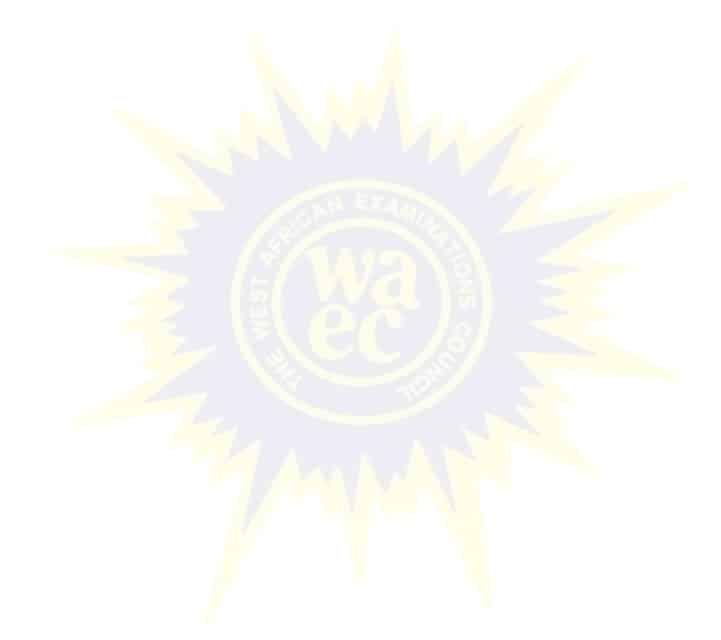
Economics
Paper 1 | Objectives | 36 Questions
WASSCE/WAEC MAY/JUNE
Year: 1992
Level: SHS
Time:
Type: Question Paper
Answers provided
FREE
No description provided
Feedbacks
This paper is yet to be rated

Paper 1 | Objectives | 36 Questions
WASSCE/WAEC MAY/JUNE
Year: 1992
Level: SHS
Time:
Type: Question Paper
Answers provided
No description provided
This paper is yet to be rated
Apply tips for stress-free eating before and during exams and what to avoid for good grades.
Norway Kvaroy Arctic Women in Aquaculture Postgraduate Scholarship Program 2022 for African Women
Scholarship in Norway universities are open for application in 2022 also for developing countries.
| # | Question | Ans |
|---|---|---|
| 1. |
Economics is a social science because it A. deals with an aspect of hman behaviour B. provides people with commodity they want C. deals with limited resources which have alternative uses D. deals with the production of goods for present and future consumption E. is related to how choice is made |
A |
| 2. |
Scarcity in Economics generally refers to A. a period of production B. hoarding of goods C. monopolization of existing supply of resources D. period of famine E. resources being limited |
E |
| 3. |
Opportunity cost is define as the A. money cost B. cost of production C. real cost D. variable cost E. fixed cost |
C |
| 4. |
The most basic concern of economists is to A. create human wants B. saisfy all human wants C. redistrubute income so that it is used correctly D. create perfect competition E. allocate scarce resources to satisfy human wants |
E |
| 5. |
The equilibrium price of orange is 50k. If for some reason the price rises to 60k, there will be A. excess demand B. excess supply C. shortage in the market D. many buyers in the market E. no buyer in the market |
B |
| 6. |
In Economics production is complete when A. goods are produced in the factories B. goods are sold to wholesalers C. prices are fixed for goods and services D. goods and services reach the consumer E. goods are sold to retailers |
D |
| 7. |
Which of the following is not a characteristics of money? A. Scarcity B. Durability C. Divisibility D. Homogeneity E. Mobility |
E |
| 8. |
Which of the following defines Economics most comprehensively ? A. The study of buying and selling B. The organization of industries and markets C. The study of human behaviour in the allocation of scarce resources D. National development, planning and budgeting E. The study of market forces as they affected human behaviour |
C |
Preview displays only 8 out of the 36 Questions